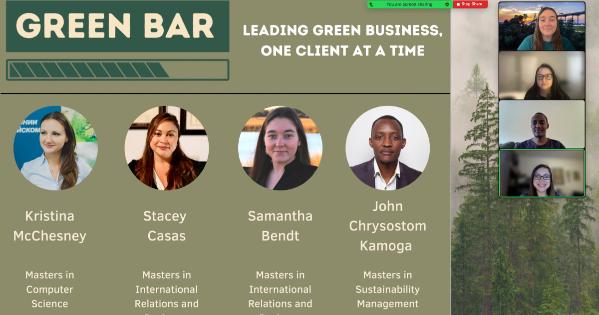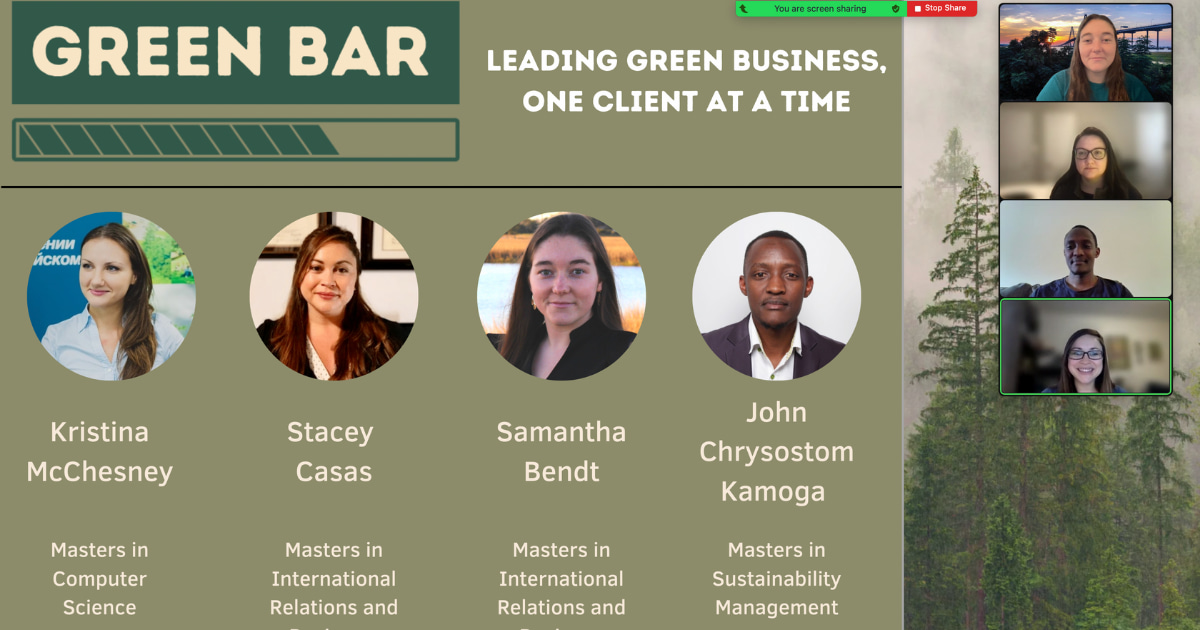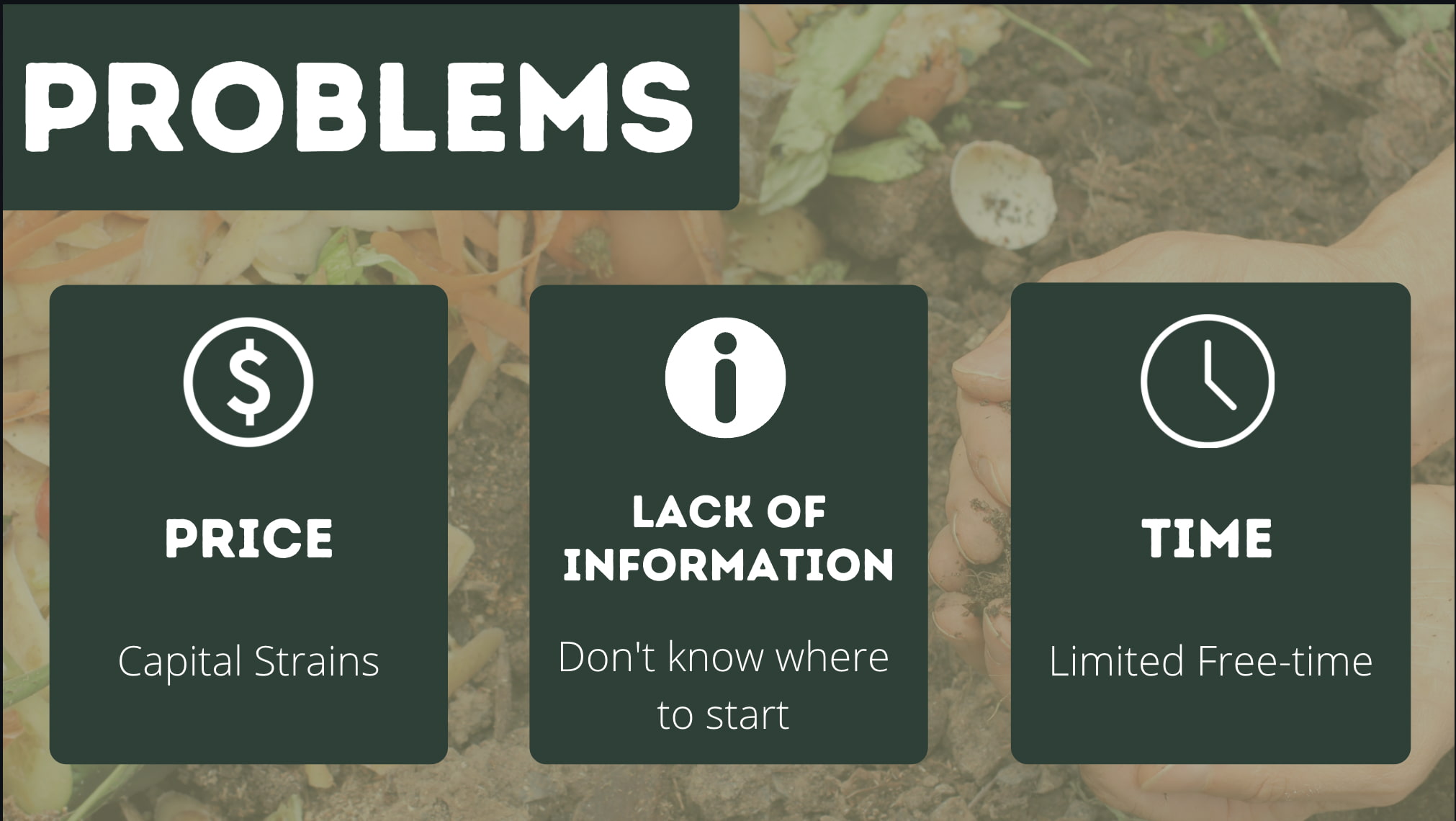Making a Difference One Hack at a Time

For students and professionals involved in the tech world, hackathons are all the rage. These fast-paced competitive events bring together computer programmers and designers to develop software quickly, but tend to be limited to techies.
Hack-for-a-Change is a hackathon with a difference. As the name says, it’s all about making change. It’s also multidisciplinary, involving students from a range of AU disciplines. There’s a big incentive involved, too: it comes with a $10,000 cash prize split between the three finalists.
Hack-for-a-Change is the brainchild of AUCI Directors Tommy White and Bill Bellows, department of Physics faculty Kathryn Walters-Conte and computer science instructor Narendra Desirazu. They launched it last year, while looking for a way for students to engage in teamwork remotely while solving real-world problems. This year, 30 students in eight multi-disciplinary teams worked on finding winning solutions for unmet tech needs in health, education, finance, media, and the environment.
Each group of three to four undergraduate or graduate students pairs computer students with students from other disciplines. For example, Team Green Bar has one student from computer science, one student in sustainability management, and two pursuing joint degrees in international relations and business.
To win a portion of the $10,000 prize, teams had to convince the panel of judges that they’d identified a significant need, found a solution, and had developed a software proposal.
When the Green Bar team first met, they realized they shared an interest in sustainability and, as Samantha Bendt (MS Kogod/SIS ‘22) puts it, "how our world can go green." They narrowed their focus to small business, and in particular, something very specific to DC: the restaurant industry.
"There are over 2,500 operating restaurants just in DC. Restaurants create a lot of waste and use a lot of energy," says Kristina McChesney (MS CAS ‘22). But sometimes, they don’t even have recycling programs, let alone other green solutions, says Stacey Casas (MS Kogod/SIS ‘22). "We see a gap in this industry that we can fill," Casas says.
As they brainstormed solutions, they hit on a plan: develop a website that could be a one-stop sustainability shop for small businesses such as DC-area restaurants. It could help to bring personalized solutions and effective plans to companies who want to go greener.
For instance, what if a restaurant wants to improve their recycling operation and water consumption? The Green Bar draft website displays a personalized quiz with questions about what the business' goals are and presents a curated list of resources, community news sources, green certification options, and more.
When they presented their solutions to the panel, the judges agreed: It was an important issue, and they’d devised a meaningful solution. Green Bar won the first place prize of $5,000.
Second place went to Root Scholar, with an idea to help faculty in the tech age: create an open, online library of programming templates available for university faculty to use across the country.
In third third place, CredTech proposed to develop an innovative credit card that would enable Gen Z to learn personal finance skills while building their credit.
 The Green Bar team works on their CleanTech presentation. [Kristina McChesney (MS CAS ‘22), Stacey Casas (MS Kogod & SIS ‘22), Samantha Bendt (MS Kogod & SIS ‘22), John Chrysostom Kamoga (MS Kogod ‘22)]
The Green Bar team works on their CleanTech presentation. [Kristina McChesney (MS CAS ‘22), Stacey Casas (MS Kogod & SIS ‘22), Samantha Bendt (MS Kogod & SIS ‘22), John Chrysostom Kamoga (MS Kogod ‘22)]
 Green Bar’s presenting their issue.
Green Bar’s presenting their issue.
"Team collaboration is a very important thing that you can learn from a project like this," says McChesney. "It’s important to work with different fields to see how people think and what kind of questions they ask," she says.
To Walters-Conte, making the event multidisciplinary was essential. "When a student studies a particular major, they can often be focused inward in their subject, and technical sciences can be like that," she says. "In the working world, developing projects takes a lot of different skills. Encouraging entrepreneurial thinking teaches students to advocate for themselves and push their skillset."
This idea was born from Kogod's Center for Innovation and iCorps, which is a program funded by the National Science Foundation (NSF), directed by Walters-Conte, and designed to support innovations created at AU. Past iCorps projects have included an animal genetic testing service, a high-resolution drone camera tracking flight data, and a computational text-mining device.
In Hack-for-a-Change, students who start as strangers from different areas of study work together toward solutions to make the world a better place. "We are passionate about addressing issues on climate change and have sought to educate others on how to become greener in their business practices," wrote Team Green Bar after their win. "We are thankful that our passion and dedication showed through in our work and are excited to see where this journey will take our team."
